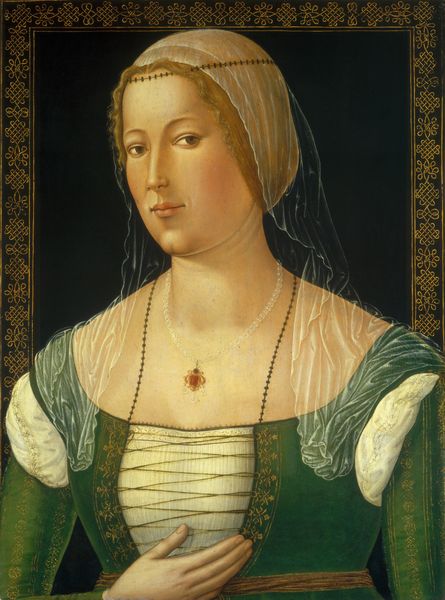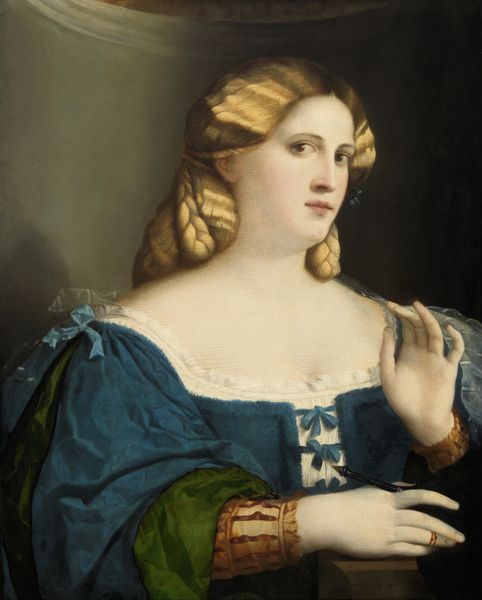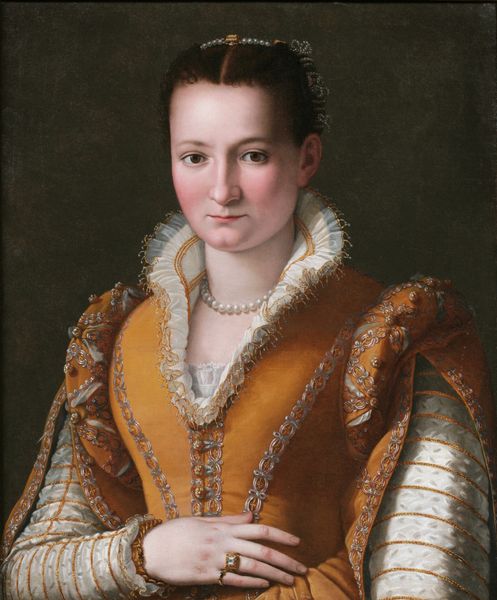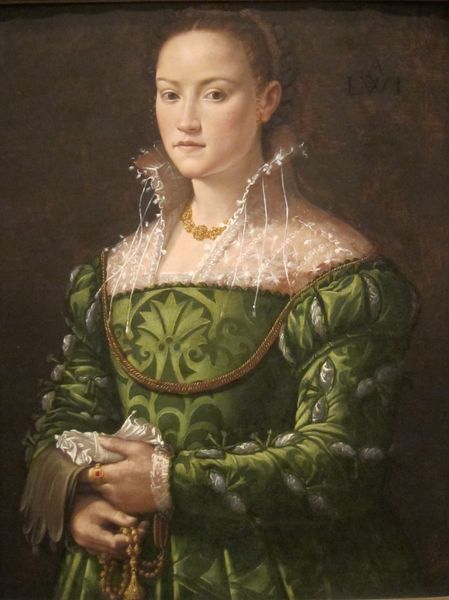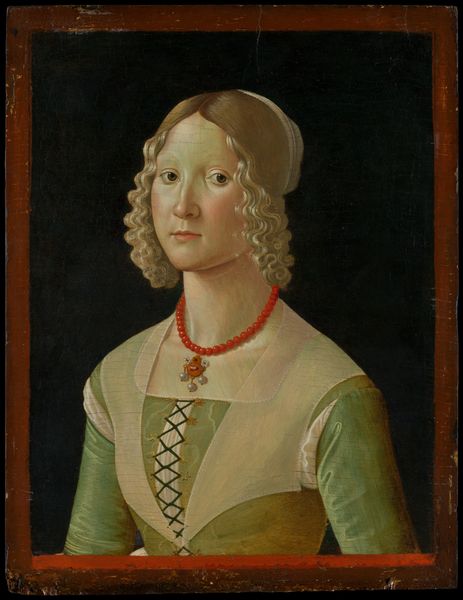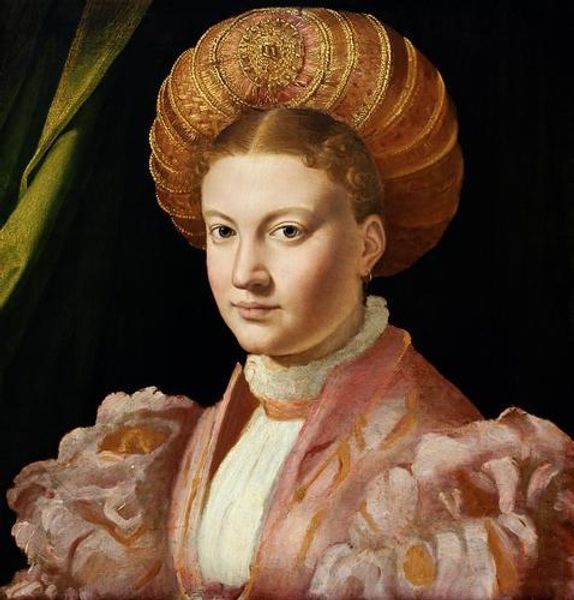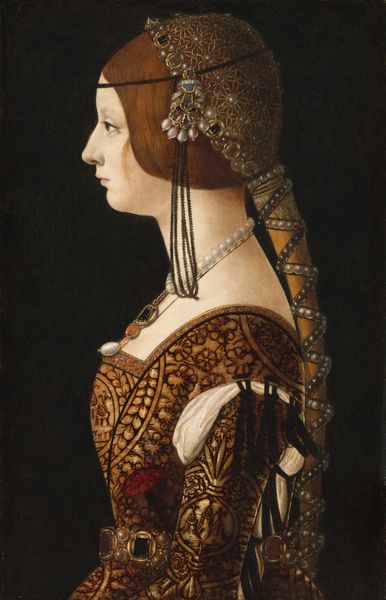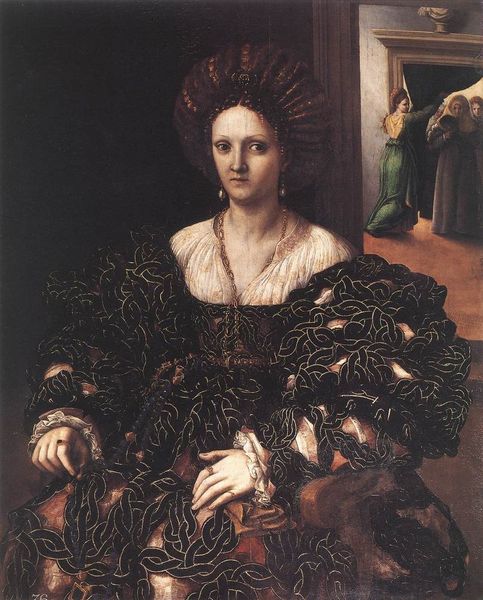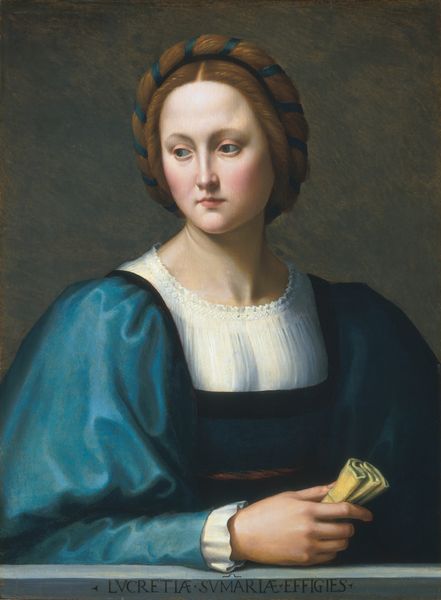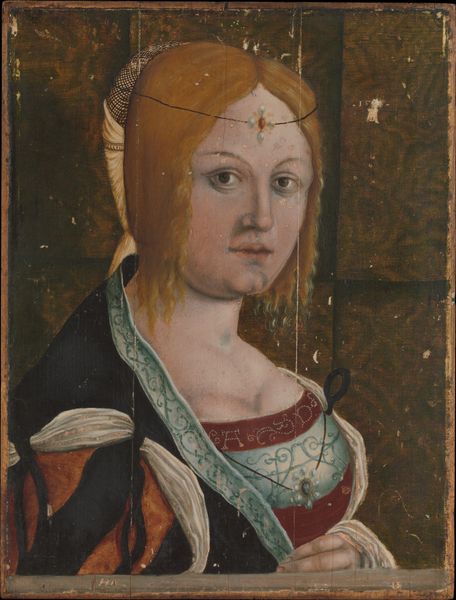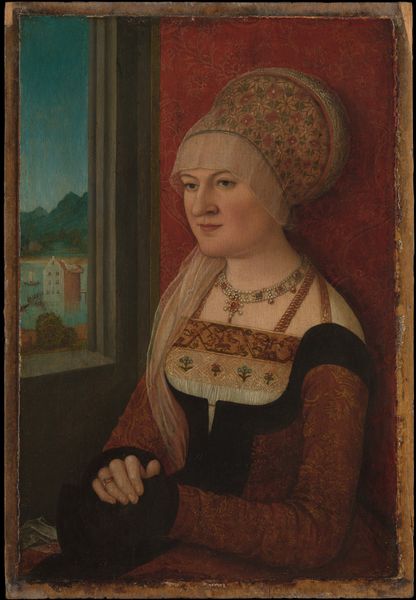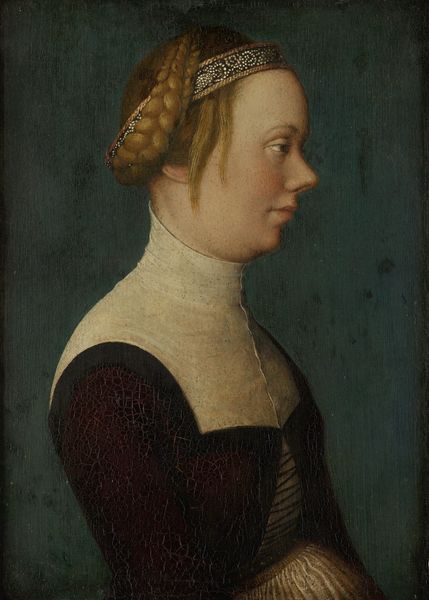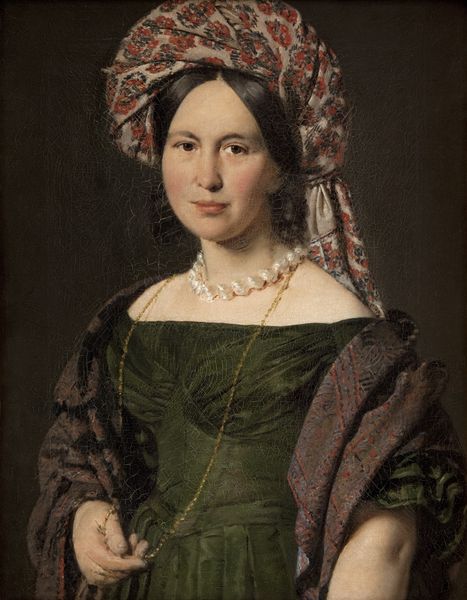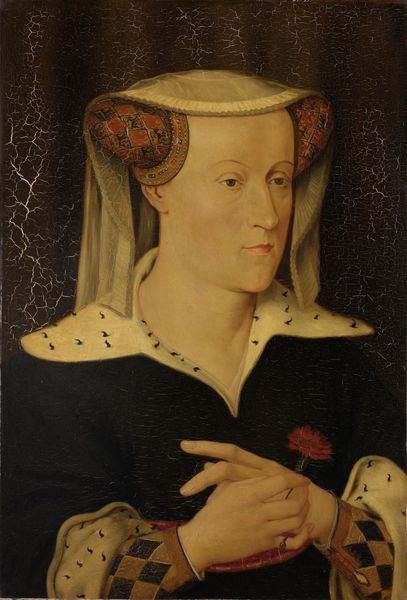
#
portrait
#
portrait reference
#
portrait head and shoulder
#
animal portrait
#
animal drawing portrait
#
portrait drawing
#
facial portrait
#
lady
#
portrait art
#
female-portraits
#
fine art portrait
#
celebrity portrait
#
digital portrait
Copyright: Public domain
Bernardino Luini, a follower of Leonardo da Vinci, painted this 'Portrait of a Lady' in oil, likely in the 1520s, during the High Renaissance in Northern Italy. In this period, portraiture served as a powerful tool for projecting social status. Note the woman’s opulent clothing, jewelry, and fur stole, all visual markers of wealth and nobility. This is further emphasized by her controlled pose and serene expression. The careful attention to detail and the soft, diffused light are stylistic features that Luini absorbed from Da Vinci. We should consider this image in the context of Renaissance social structures, where gender roles were highly defined. Female portraits often emphasized beauty, virtue, and social standing, reinforcing the patriarchal norms of the time. The art historian can provide insight into this painting by researching the fashion trends, social customs, and economic conditions of Renaissance Italy. Through careful investigation, we can decode the complex meanings embedded in this portrait and understand its place within the broader social and institutional landscape of its time.
Comments
No comments
Be the first to comment and join the conversation on the ultimate creative platform.
